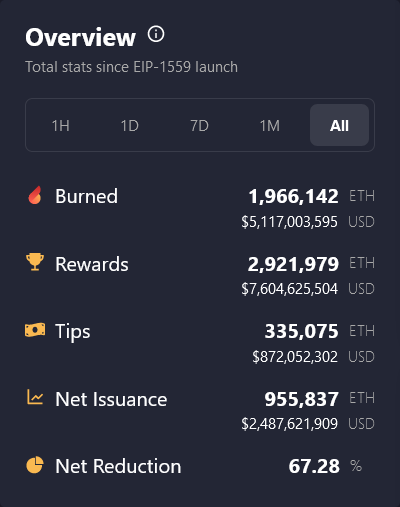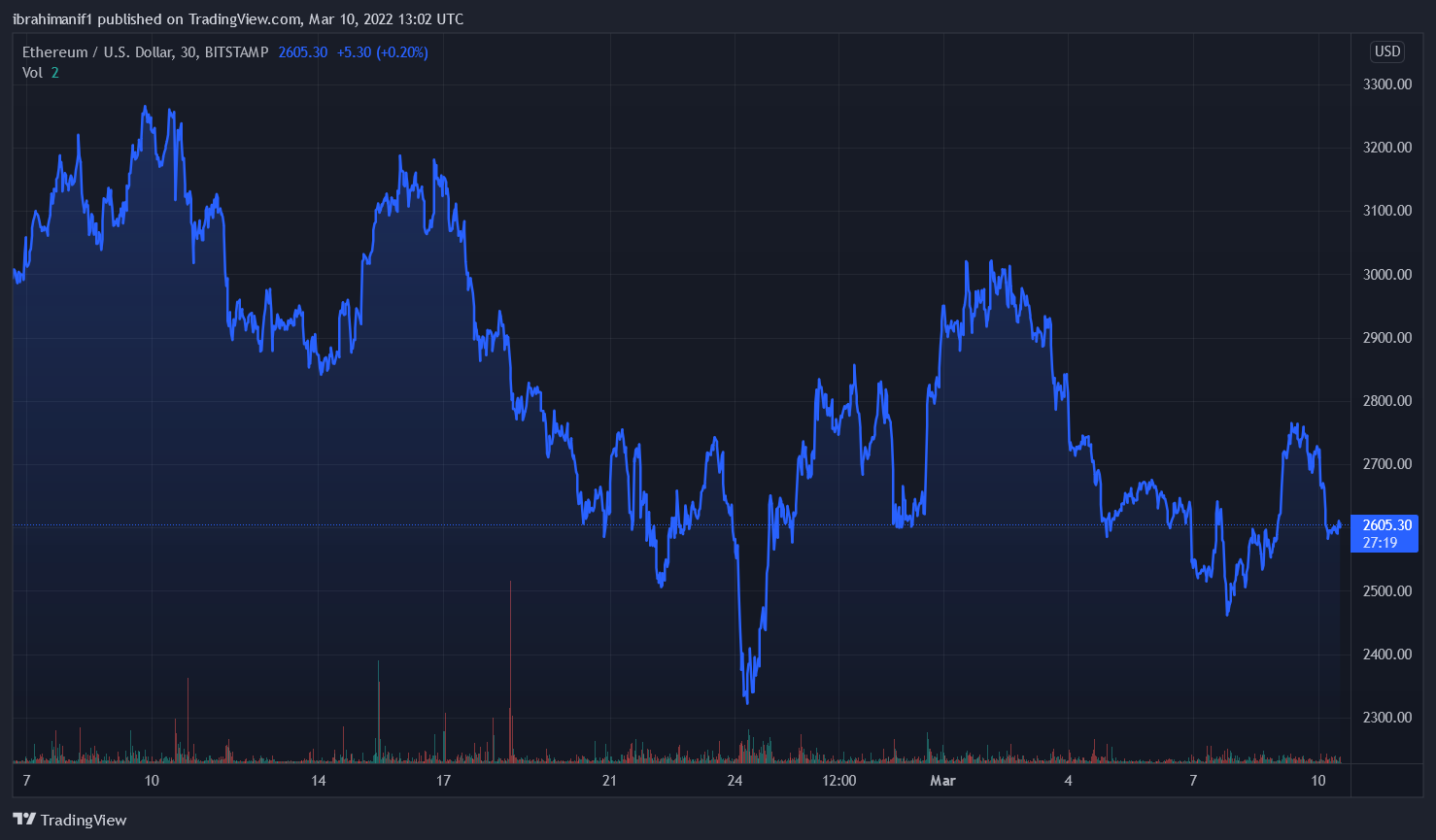- March 10, 2022
- Posted by: admin
- Category: BitCoin, Blockchain, Cryptocurrency, Investments
Since its debut on August 4, 2021, the Ethereum Improvement Protocol (EIP) 1559 has been an integral feature of the London Hard Fork.
The major goal of this upgrade is to stabilize the excessive gas fees that are caused by scalability issues with Ethereum’s proof-of-work (POW) network.
Ethereum Burn For Price Stabilization
This was considered as a solution to help offset the inflation rate associated with miner incentives while also establishing the value of the Ethereum ecosystem’s native asset.
According to Research, about 1,959,407 ETH in base fees have been consumed since EIP-1559 was adopted in August 2021, valued more than $5 billion at the exchange rate in March 2022.

Stats For total ETH burnt. Source: Watch The Burn
More than 1.9 million coins have been permanently removed from circulation as a result of this.
Related article | Ethereum Founder Burns Billions Worth Of Coins
On September 15, 2021, a total of about 297,000 ETH were destroyed. As of March 2022, the total quantity of burned coins has climbed by 559 percent, according to the numbers cited above.
Because coin burning is mostly related with fees, a major portion of this statistic can be ascribed to an increase in demand for non-fungible tokens (NFTs) such as CryptoPunks and Bored Ape Yacht Club, as well as for use on decentralized exchanges like Uniswap and SushiSwap.
The major goal of EIP-1559 after it was launched was to burn 2,560,000 ETH in a year (August 2021 to August 2022).

ETH/USD trades at $2,600. Source: TradingView
The gap between the entire number of ETH that will be burned and the total number that has already been burned is over 600,000 ETH.
This indicates that almost 76 percent of the coins expected to be destroyed have already been torched, with the remaining 24 percent set to be burned by the end of August 2022.
Related article| Ethereum Price Surges As London Hard Fork Goes Live
Featured image from Pixabay, chart from TradingView.com